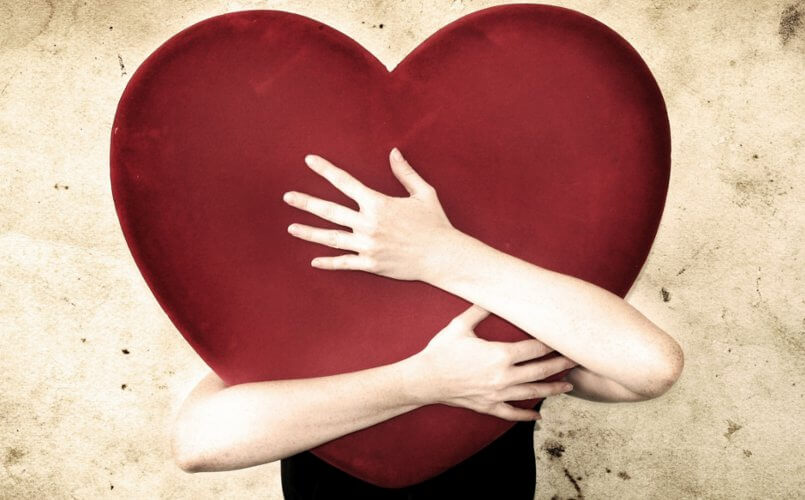Even the most passionate of lovers might stop and think at some point in their relationship “Does love fade?” Yes, the flames of passion might simmer down, but that doesn’t mean love has faded. It has just taken on a new form, one that’s often deeper and more meaningful. So, next time you’re wondering does love fade, remind yourself that it often morphs into something even more beautiful and enduring over time. It’s a sign of love evolving, maturing like a fine wine that only gets better with time.
Science Behind Love’s Lifespan
Love in all of its awe-inspiring variations is at it’s base level, a complex and immensely intimate brain function. It is not an emotion restricted to the heart. In reality, our brain operates as the control hub for all things that are love and relationship related. This is where the potent mix of chemicals creating that first rush of love starts brewing. An mix of monoamines, including serotonin, norepinephrine, and dopamine fuel the ‘heady rush’ associated with the initial stages of a romantic love affair. This neurochemical nirvana is fleeting and transient and is bound to taper off eventually. Typically, these exhilarating emotions hang around for two to three years at the most.
This decrease in the intensity of romantic feelings is not a design flaw in the grand scheme of love. It’s a strategic move by nature. A catalyst for couples to spend sufficient time together is an initial surge of passionate love. This then means they develop a long-term attachment before the infatuation fizzles out.

Four Phases of Love
Love like life is a journey marked by distinct phases. Each of these four stages of love has it’s own characteristics and of course, challenges that go along with it.
1. Selection of the Mate
An initial phase involves the selection of a potential partner, the law of attraction. This is a process governed by an unconscious instinct that guides you towards individuals whose genetic composition when combined with yours would likely result in healthy children.
2. Birth of Romance
This next stage marks the birth of romance and the onset of the ‘falling in love’ phenomenon. It’s during this phase that the brain is awash with monoamines giving a heightened state of excitement and euphoria. This phase is not eternal and is programmed to dissipate eventually.

3. Ebbing of Romantic Love
A waning of romantic love signifies the commencement of a pivotal phase in the journey of love. It’s at this juncture that the initial infatuation subsides. Reality seeps in, providing a clearer perspective of the relationship and the partner.
4. Emergence of True Love
If the decision at the end of the previous phase is in favor of the partner, the couple progresses towards the final stage of love – True Love. This phase signifies a deep-seated bond, driven by nonapeptides. These are chemicals designed by nature to keep couples together until their offspring reach maturity.
Does Love Fade Over Time?
One of the most significant aspects to comprehend when exploring the question, “Does love fade?” is that love in itself doesn’t fade. It changes from one form to another. The initial phase of passionate love, characterized by an intense physical attraction and a strong emotional connection, eventually gives way to a more enduring form of love.
Passionate Love vs. Companionate (Compassionate) Love
Passionate love, with its intoxicating mix of intense emotions and powerful physical attraction, is usually the initial phase of any romantic relationship. This fiery form of love is not designed to last forever. It’s the companionate love, the kind that prevails within established couples, that endures and often grows stronger over time.
Illusion of Fading Love
Transition from passionate love to companionate love gives rise to the perception of love fading. This illusion is a consequence of the ingrained cultural and societal norms that equate love with infatuation. Popular media tends to spread the story that strengthens this misunderstanding. It leads to the idea that drops in sexual desire in a relationship means that the love is over.
Realization of Long-term Love
Creating a lasting bond of love requires more than just the initial spark of attraction. It needs a conscious commitment and a willingness to allow the relationship to evolve naturally. A key lies in understanding that love is not a static thing but a dynamic process that fluctuates and evolves over time. A journey from infatuation to intimacy involves a shift from the initial stages of intense attraction and passion to a more profound connection. This then incorporates elements of trust, respect, and mutual understanding. But this transformation won’t occur overnight. It requires time, patience, and effort from both partners.
Role of Communication
A really important role in facilitating the transition from infatuation to intimacy is open communication. Open and honest communication lets partners express their needs and desires, fostering a deeper understanding of each other and paving the way for a more fulfilling relationship. A transition from passionate love to compassionate love is often marked by certain changes in the relationship dynamics. These changes, while potentially alarming, show the evolving nature of love.
Evolution of Love
The initial heady rush of romance inevitably gives way to a more stable and sustainable form of love. This shift is accompanied by changes in the relationship dynamics. What were once incessant phone calls and messages now turn into comfortable silences and shared moments of tranquillity.
Changes in Physical Intimacy
It also brings about changes in the levels and expressions of physical intimacy. Fiery passion of the initial days may gradually mellow down into a more profound and meaningful expression of love and intimacy.
So, Does love fade?” This is a misinterpretation of the natural evolution of love. Love, in its truest sense, doesn’t fade. It evolves from an intense, passionate emotion into a deeper, more enduring form of affection. This evolution is a testament to the dynamic nature of love and the incredible capacity of the human heart to adapt and grow. The key lies in recognizing and embracing this evolution and so love will flourish in all it’s many forms.

Rick has been involved in the adult lifestyle and sex toy industry for more then 25 years. Rick is an active sex blogger who provides a wealth of information and experience. He is an advocate of equality for gender and sexuality.



